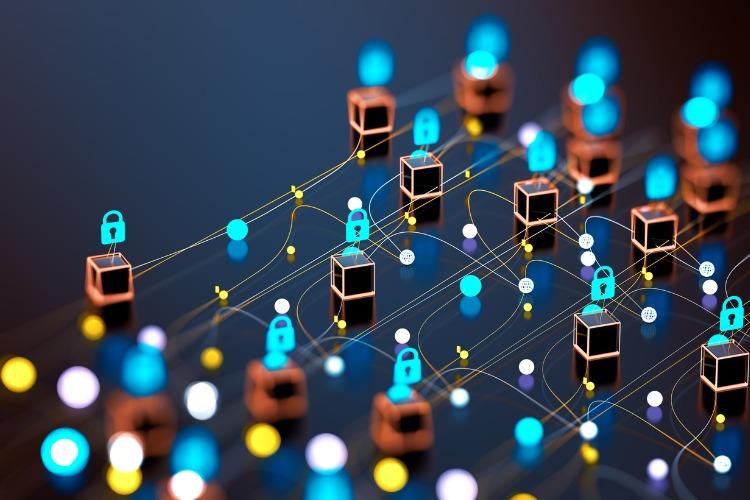Is decentralized Internet the future?
The Internet has come a long way since its invention, and activities on the Internet have become an important part of our daily lives. However, the traditional approach to Internet hosting has remained centralized and the entire technology industry is concerned about the power of data concentrated in the hands of the leading tech companies, including Google, Amazon, Microsoft, etc. Therefore, in the last few years, the decentralization process has become a new trend offering improved security from cybercrimes, privacy, and availability of online services. So, is decentralized Internet the future?
Web3: Next generation of Internet
Today, Web3 is the next generation of the Internet. One of the main reasons why this Internet (Web3) is such a powerful invention is that it is based on software that enables the creation of new networks and platforms. Web 1.0 and Web 2.0 were not tied to any particular technology, but only to sets of network communication protocols. In the early days of the Internet (Web 1.0), people could surf the web and read. The current Internet (Web 2.0) provides extensive opportunities for reading and writing. Today, technology experts say that Web 3.0 is a network where every person can not only read and write but also own documents and information.
The number of Web 3 users is growing
Currently, the market capitalization of Web3 is estimated at 27.5 billion dollars. In comparison to 2021, the international Web3 market was estimated at only 3.2 billion dollars. Moreover, it is expected that by 2030 the value of Web3 will reach 81.5 billion dollars. It should be mentioned that virtual experiences can indeed be diverse: from games, and socializing to educational content. For instance, decentralized games are becoming more and more popular, so the circulation of money in these areas is also extremely high. According to statistics, from 2021 first quarter to 2022 first quarter, blockchain games grew by 2000%.
Blockchain trends change today’s business
What is blockchain? Blockchain is a decentralized data system technology used to store and transmit information. In a blockchain, information is stored in blocks - when one block is filled, it is recorded, closed, and merged with the previous block. Each block of the blockchain securely includes the hash of the previous block; thus creating a robust blockchain. Anyone who wants to change one block will have to change all subsequent blocks, which is not only technically difficult but also very expensive. In other words, it creates a blockchain that is almost impossible to hack or change in any way due to decentralization. So, this technology was created for safe and convenient surfing on the Internet without third parties. It should be mentioned that people are responsible not only as a community in blockchain but also personally because they must protect their passwords and make sure that they perform the right operations (transfer cryptocurrency to the right account, buy the right digital rights, etc.).
A VPN: A popular additional security tool
A VPN stands for "virtual private network" and is an additional security measure or service that protects your internet connection and privacy online. For instance, government agencies, marketers, and Internet service providers track your activity and collect your browsing history, messages, and other personal data. What is the best way to hide it? Protect your data with a VPN. A VPN creates an encrypted tunnel for your data, protects your online identity by hiding your IP address, and lets you use public Wi-Fi hotspots safely. According to statistics, more than 1,5 billion people in the world use VPN.
Decentralized VPN vs. traditional VPN
Decentralized VPN provides the same private browsing functions, but unlike traditional VPN providers, the decentralized VPN does not store user data and is more resistant to cyber-attacks. Decentralized VPNs use blockchains and have their respective tradable cryptocurrencies.
Here is an overview of decentralized VPNs or dVPNs and traditional VPNs:
|
dVPNs |
VPNs |
|
|
Maintenance |
managed by volunteers |
managed only by the service provider |
|
Servers |
belong to many individuals |
belong to a single company |
|
Cost |
cryptocurrencies or tokens |
subscription fee |
|
Speed |
slower because of multi-hop routing |
faster |
|
Security |
more secured due to distributed architecture |
vulnerable due existence of only central control |
|
Encryption |
yes |
yes |
When talking about a decentralized private network, it is emphasized that its use ensures safer Internet browsing and guarantees security if you want to avoid hacking and other malicious activities. Also, its use will ensure the anonymity of the user. All in all, the decentralized VPN is the new powerful security tool of the future.
The bottom line
According to recent statistics, decentralized internet usage is growing rapidly worldwide. Also, we can say that its demand will only increase in the future. With the growing demand for a decentralized Internet, the need for the usage of additional security programs and technologies will also grow. For example, today, the availability and usage of VPNs, including decentralized VPNs, is growing faster and faster worldwide.

